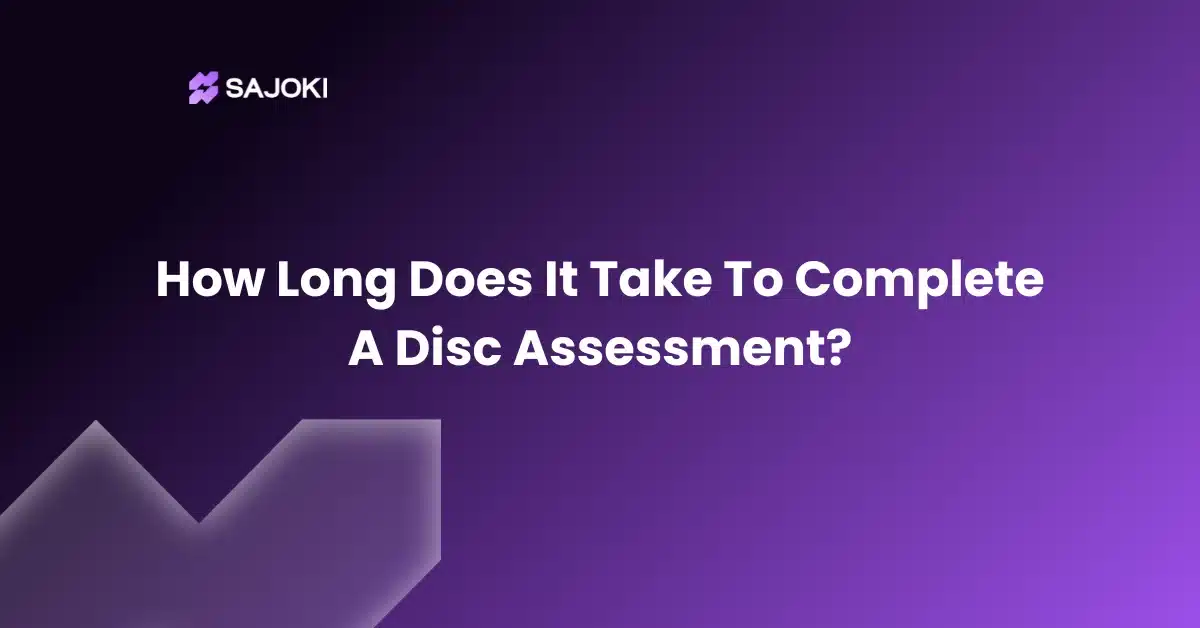Sales is a fast-paced and human-facing profession that requires more than product knowledge. Sales professionals need to connect, influence, accommodate, and persist. That is where the knowledge of individual behavior and work style comes into play.
So, what is the purpose of personality tests for sales people?
Personality Tests for sales people identifies behavioral tendencies, communications style, and motivating drivers that result in sales success. These are utilized for hiring top-performing teams, training them, and managing them.
Learn how personality tests can help you hire better, train smarter, and lead better in sales from the following.
Why Personality Tests Are Important in Sales

In sales, performance is associated with a person’s ability and adaptability. Every customer interaction requires tailor-made communication.
The measurement of a salesperson’s strengths and weaknesses helps organizations in planning their development.
These tests give feedback on how an individual responds to pressure, criticism, goals, and change.
They dispel management guessing and boost retention by putting the right people in the right jobs.
When combined with coaching and role-specific tools, personality assessments enrich the entire sales culture. Hiring gets smarter, and development is more personalized.
Signature Traits That Drive Sales Excellence
There are traits that consistently appear among top-performing sales reps. A sales rep personality test can help find these traits early in the process.
1. Resilience
Sales are filled with rejection. Resilience helps reps bounce back and stay on target. A test identifies whether an individual can handle failure in a healthy manner.
High-resilience individuals don’t lose energy after failed transactions. They maintain motivation and continue to work towards goals with a positive attitude.
2. Persuasiveness
Persuading people know how to shape behavior without force. It is important in turning interest into commitment. It’s not a matter of forcing but guiding.
A test measures assertiveness, confidence, and emotional intelligence. All combined make up a rep’s objection-handling and closing ability.
3. Empathy
Customer pain points are something one needs to know about in order to use solution selling. Empathetic sellers listen carefully and connect with a person emotionally.
This makes for trust and long-term relationships. Tests elicit whether a person naturally gravitates to considerations of others when they communicate.
4. Goal Orientation
Salespeople must be results-driven. Goal orientation is results-driven by accomplishment, numbers, and measures of success.
Tests show how competitive and goal-oriented a prospect is. It shows whether a person will chase after targets or not.
5. Adaptability
Markets change. Opportunities vary. A quality salesperson adjusts their tone, pitch, and manner to a particular circumstance.
Tests determine adaptability in conduct. This is key to thriving within high-stakes, fast-paced sales situations.
5 Best Personality Tests for Sales People
Not all tests are created equal. Here follow some of the best instruments utilized to identify sales traits.
1. DISC Assessment
DISC measures Dominance, Influence, Steadiness, and Conscientiousness. It shows how an individual behaves under stress and how they get on with others.
Sales managers use DISC to profile customers and team roles. It is also useful for reps in refining their style of communication.
2. Big Five (OCEAN)
The Big Five measures Openness, Conscientiousness, Extraversion, Agreeableness, and Neuroticism. These traits provide a deep insight into style in the workplace.
In sales, it helps in forecasting collaboration, drive, and emotional stability. It’s science-backed and reliable.
3. Sales-specific Tests
There are tests that are specifically designed for sales jobs. They test for closing, reluctance to call, and risk tolerance.
Among them are tests like Caliper Profile or Objective Management Group’s Sales Assessment. These are sales recruitment-specific tests.
4. Emotional Intelligence (EQ-i)
Salespersons need self-awareness, impulse control, and empathy. EQ tests measure emotional maturity, and this helps in social interaction.
This is critical for internal cooperation and client management. It also contributes to long-term customer loyalty.
5. Sajoki’s AI-Driven Assessment
SAJOKI provides combined AI-assessed reports that include DISC-type behavior reports. It uses personality data to suggest team fit.
Dynamic insights and role matching are useful for sales teams. It is useful for hiring and ongoing skill development.
How Tests Help Managers and Teams: 5 Key Ways
Aside from hiring, tests have numerous uses in sales management. They assist in optimizing team dynamics and enhancing coaching efficiency.
1. Enhanced Hiring Decisions
Utilizing personality tests for hiring minimizes misfit. Managers become clear about whether or not a candidate will succeed in the position.
This enhances retention and prevents expensive turnovers. Businesses are able to hire with increased confidence and objectivity.
2. Customized Coaching Plans
Every salesperson learns differently. Some require structure, others love autonomy. Tests identify learning styles.
Coaches can customize feedback and development plans. This boosts skill development and motivation.
3. Better Team Composition
Diverse teams need balance. One’s strength can counteract another’s weakness. Assessments help build balanced sales teams.
Managers can also prevent conflict in the team since they understand how members work together. This boosts leadership effectiveness.
4. Retention and Growth
People are more engaged when they feel understood. Personality tests make employees feel understood as a person.
Managers can map career paths by strengths. This generates satisfaction and reduces turnover.
5. Conflict Resolution
Sales is a high-pressure setting, which can cause conflict. Tests reveal stress behaviors that may be generating tension.
Understanding team dynamics allows managers to defuse conflict before it gets out of hand. The result is a more peaceful work culture.
When to Use Personality Tests
Timing is of the essence. Use personality tests as part of a larger process and not in isolation. Below are key points to remember:
- In recruiting for fit into roles
- In building new teams or expanding
- As part of sales training and induction
- Before changes in roles or promotions
- During conflict resolution or performance management
In all these instances, have the test validated and interpreted by experts. SAJOKI-style tools allow this to be done and at scale.
Real-World Use Cases
Personality test for sales people is already applied by the majority of organizations. These are retail brands, technology organizations, and small and medium-sized businesses.
For instance, a sales startup used DISC to build its first outbound team. By allocating high-I profiles in lead roles, they achieved faster results.
Another organization used EQ tests in training customer support reps who moved to sales. The training emphasized emotional self-regulation.
In both cases, morale and performance improved. Success ensues when the right employees are placed in the right environments.
Frequently Asked Questions
Are personality tests legal in hiring?
Yes, if they are job-relevant and non-discriminatory. Using validated tools is best.
Do personality tests do away with interviews?
No. Interviews are utilized and supplemented by them to yield structured behavioral data.
Can an individual fake test results?
Good tests incorporate malingering controls. However, interviews and coaching must support the process.
How often are tests to be retaken?
Every year or whenever jobs change significantly.
Do introverts fail as salespeople?
Not at all. Introverts like many, excel at sales through empathy and listening. Compatibility of style is greater than type.
Conclusion
In summary, a personality test for sales people reveals their behavior, strengths, and fit for assigned jobs. It helps managers make smarter hiring, training, and leadership decisions.
When used correctly in conjunction with tools like SAJOKI, these tests transform the selling process. They bring people together with compatibility of individuals, functions, and outcomes for enhanced long-term development.















